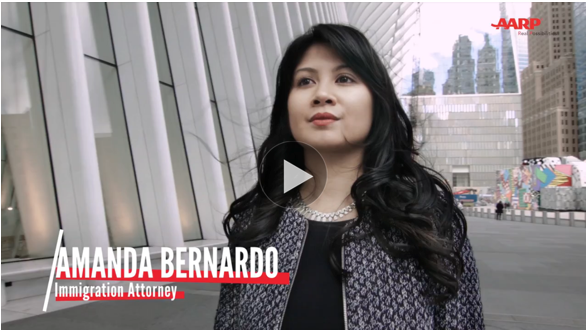Older Filipino Americans are particularly vulnerable as targets of certain fraud. According to AARP’s “Facing Fraud or Saving Face? A Survey of Asian Americans and Pacific Islanders 50 Years and Older on Fraud and Scams” (www.aarp.org/AAPIfraudsurvey), many con artists use immigration scams to falsely promise cheap, quick, or easy paths to work permits and green cards.
Scammers pretend to provide quality legal advice, help with paperwork, or other tasks involved in the immigration process. The scammer usually asks for an upfront fee, takes the money, and disappears immediately. Or worse, they provide ineffective or even harmful representation by filing the wrong paperwork, using fraudulent measures, or misrepresenting facts. The American Bar Association believes immigration fraud is underreported because many victims are often ashamed to report it to authorities or are afraid it will affect their immigration status.
Amanda Bernardo, Co-Chair of AABANY’s Immigration Committee, provides tips and advice on how to avoid being a victim of immigration fraud. She is working with AARP to help the Filipino community and notes “The immigration process can be confusing and intimidating, especially for Filipinos and Asian immigrants who face language barriers.”
Daphne Kwok, AARP Vice President of Multicultural Leadership, Asian American and Pacific Islander Audience Strategy says “Con artists often target immigrant communities because they are particularly vulnerable, but knowing how they work can help you spot and avoid scams.”
To learn more about Amanda Bernardo and to watch her video, click here.



